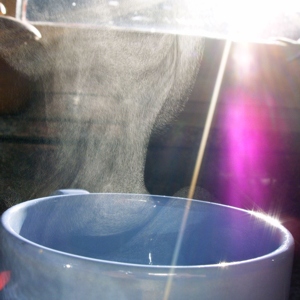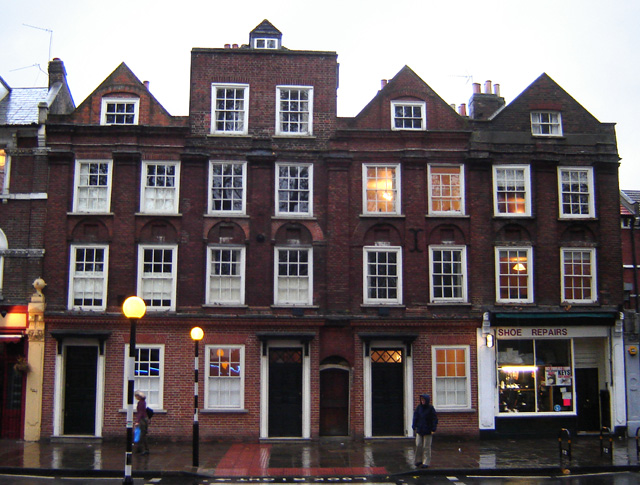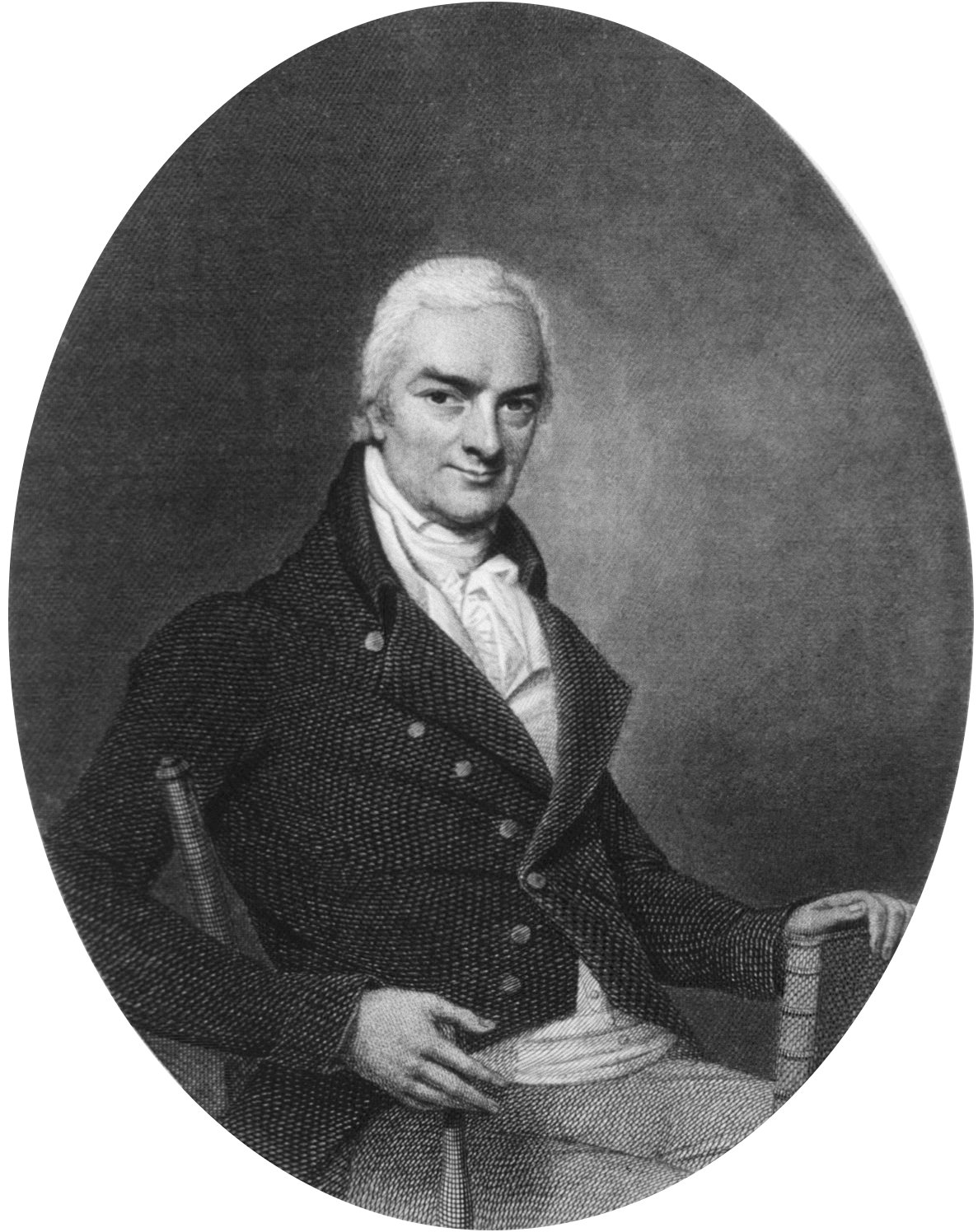|
Matthew Dobson (physician)
Matthew Dobson (1732–1784) was an English physician and experimental physiologist. He is now remembered for his work on diabetes. Life and career His parents were Joshua Dobson, a nonconformist minister at Lydgate, West Yorkshire, and Elizabeth, daughter of Matthew Smith who was minister at Mixenden. He matriculated at Glasgow University in 1750, where he graduated MA in 1753. He then moved to Edinburgh University, where he graduated MD in 1756. From the end of the decade he worked as a doctor in Liverpool. Dobson worked with Matthew Turner and others to set up the Liverpool Academy of Art in 1769, a local reply to the Royal Academy's foundation in 1768. After a slow start, a first exhibition was held in 1774. (The 1810 foundation of the Liverpool Academy of Arts was in the nature of a fresh beginning.) In 1770 he was appointed physician to Liverpool Infirmary, as successor to John Kennion. He had a house in Harrington Street. When William Enfield wrote his ''History of Lev ... [...More Info...] [...Related Items...] OR: [Wikipedia] [Google] [Baidu] |
Physiologist
Physiology (; ) is the scientific study of functions and mechanisms in a living system. As a sub-discipline of biology, physiology focuses on how organisms, organ systems, individual organs, cells, and biomolecules carry out the chemical and physical functions in a living system. According to the classes of organisms, the field can be divided into medical physiology, animal physiology, plant physiology, cell physiology, and comparative physiology. Central to physiological functioning are biophysical and biochemical processes, homeostatic control mechanisms, and communication between cells. ''Physiological state'' is the condition of normal function. In contrast, ''pathological state'' refers to abnormal conditions, including human diseases. The Nobel Prize in Physiology or Medicine is awarded by the Royal Swedish Academy of Sciences for exceptional scientific achievements in physiology related to the field of medicine. Foundations Cells Although there are difference ... [...More Info...] [...Related Items...] OR: [Wikipedia] [Google] [Baidu] |
Hester Thrale
Hester Lynch Thrale Piozzi (née Salusbury; later Piozzi; 27 January 1741 or 16 January 1740 – 2 May 1821),Contemporary records, which used the Julian calendar and the Annunciation Style of enumerating years, recorded her birth as 16 January 1740. The provisions of the British Calendar (New Style) Act 1750, implemented in 1752, altered the official British dating method to the Gregorian calendar with the start of the year on 1 January (it had been 25 March). These changes resulted in dates being moved forward 11 days, and for those between 1 January and 25 March, an advance of one year. For further explanation, see: Old Style and New Style dates. a Welsh-born diarist, author and patron of the arts, is an important source on Samuel Johnson and 18th-century English life. She belonged to the prominent Salusbury family, Anglo-Welsh landowners, and married first a wealthy brewer, Henry Thrale, then a music teacher, Gabriel Mario Piozzi. Her '' Anecdotes of the Late Samuel Johnson' ... [...More Info...] [...Related Items...] OR: [Wikipedia] [Google] [Baidu] |
Urine
Urine is a liquid by-product of metabolism in humans and in many other animals. Urine flows from the kidneys through the ureters to the urinary bladder. Urination results in urine being excretion, excreted from the body through the urethra. Cell (biology), Cellular metabolism generates many by-products that are rich in nitrogen and must be clearance (medicine), cleared from the Circulatory system, bloodstream, such as urea, uric acid, and creatinine. These by-products are expelled from the body during urination, which is the primary method for excreting water-soluble chemicals from the body. A urinalysis can detect nitrogenous wastes of the mammalian body. Urine plays an important role in the earth's nitrogen cycle. In balanced ecosystems, urine fertilizes the soil and thus helps plants to grow. Therefore, Reuse of excreta, urine can be used as a fertilizer. Some animals use it to territory (animal)#Scent marking, mark their territories. Historically, aged or fermented urine (kn ... [...More Info...] [...Related Items...] OR: [Wikipedia] [Google] [Baidu] |
Evaporation
Evaporation is a type of vaporization that occurs on the surface of a liquid as it changes into the gas phase. High concentration of the evaporating substance in the surrounding gas significantly slows down evaporation, such as when humidity affects rate of evaporation of water. When the molecules of the liquid collide, they transfer energy to each other based on how they collide. When a molecule near the surface absorbs enough energy to overcome the vapor pressure, it will escape and enter the surrounding air as a gas. When evaporation occurs, the energy removed from the vaporized liquid will reduce the temperature of the liquid, resulting in evaporative cooling. On average, only a fraction of the molecules in a liquid have enough heat energy to escape from the liquid. The evaporation will continue until an equilibrium is reached when the evaporation of the liquid is equal to its condensation. In an enclosed environment, a liquid will evaporate until the surrounding air is ... [...More Info...] [...Related Items...] OR: [Wikipedia] [Google] [Baidu] |
William Cullen
William Cullen FRS FRSE FRCPE FPSG (; 15 April 17105 February 1790) was a Scottish physician, chemist and agriculturalist, and professor at the Edinburgh Medical School. Cullen was a central figure in the Scottish Enlightenment: He was David Hume's physician, and was friends with Joseph Black, Henry Home, Adam Ferguson, John Millar, and Adam Smith, among others. He was President of the Royal College of Physicians and Surgeons of Glasgow (1746–47), President of the Royal College of Physicians of Edinburgh (1773–1775) and First Physician to the King in Scotland (1773–1790). He also assisted in obtaining a royal charter for the Philosophical Society of Edinburgh, resulting in the formation of the Royal Society of Edinburgh in 1783. Cullen was a beloved teacher, and many of his students became influential figures. He kept in contact with many of his students, including Benjamin Rush, a central figure in the founding of the United States of America; John Morgan, who fou ... [...More Info...] [...Related Items...] OR: [Wikipedia] [Google] [Baidu] |
Richard Price
Richard Price (23 February 1723 – 19 April 1791) was a British moral philosopher, Nonconformist minister and mathematician. He was also a political reformer, pamphleteer, active in radical, republican, and liberal causes such as the French and American Revolutions. He was well-connected and fostered communication between many people, including Thomas Jefferson, John Adams, George Washington, Mirabeau and the Marquis de Condorcet. According to the historian John Davies, Price was "the greatest Welsh thinker of all time". Born in Llangeinor, near Bridgend, Wales, Price spent most of his adult life as minister of Newington Green Unitarian Church, on the then outskirts of London, England. He edited, published and developed the Bayes–Price theorem and the field of actuarial science. He also wrote on issues of demography and finance, and was a Fellow of the Royal Society. Early life Born on 23 February 1723, Richard Price was the son of Rhys Price, a dissenting minister. H ... [...More Info...] [...Related Items...] OR: [Wikipedia] [Google] [Baidu] |
Joseph Priestley
Joseph Priestley (; 24 March 1733 – 6 February 1804) was an English chemist, natural philosopher, separatist theologian, grammarian, multi-subject educator, and liberal political theorist. He published over 150 works, and conducted experiments in electricity and other areas of science. He was a close friend of, and worked in close association with Benjamin Franklin involving electricity experiments. Priestley is credited with his independent discovery of oxygen by the thermal decomposition of mercuric oxide, having isolated it in 1774. During his lifetime, Priestley's considerable scientific reputation rested on his invention of carbonated water, his writings on electricity, and his discovery of several "airs" (gases), the most famous being what Priestley dubbed "dephlogisticated air" (oxygen). Priestley's determination to defend phlogiston theory and to reject what would become the chemical revolution eventually left him isolated within the scientific community. Prie ... [...More Info...] [...Related Items...] OR: [Wikipedia] [Google] [Baidu] |
Influenza
Influenza, commonly known as "the flu", is an infectious disease caused by influenza viruses. Symptoms range from mild to severe and often include fever, runny nose, sore throat, muscle pain, headache, coughing, and fatigue. These symptoms begin from one to four days after exposure to the virus (typically two days) and last for about 2–8 days. Diarrhea and vomiting can occur, particularly in children. Influenza may progress to pneumonia, which can be caused by the virus or by a subsequent bacterial infection. Other complications of infection include acute respiratory distress syndrome, meningitis, encephalitis, and worsening of pre-existing health problems such as asthma and cardiovascular disease. There are four types of influenza virus, termed influenza viruses A, B, C, and D. Aquatic birds are the primary source of Influenza A virus (IAV), which is also widespread in various mammals, including humans and pigs. Influenza B virus (IBV) and Influenza C virus (ICV) pri ... [...More Info...] [...Related Items...] OR: [Wikipedia] [Google] [Baidu] |
John Haygarth
John Haygarth FRS FRSE (1740 – 10 June 1827) was an important 18th-century British physician who discovered new ways to prevent the spread of fever among patients and reduce the mortality rate of smallpox. Life Haygarth was born to William Haygarth and Magdalen Metcalfe at Garsdale, near Sedbergh, West Riding of Yorkshire, in a house where his grandparents' initials can still be seen above the door. He attended Sedbergh School and was tutored by John Dawson, a fellow Sedberghian and a surgeon and mathematician. He attended St. John's College, Cambridge from 1759 to 1766. Haygarth matriculated at the University of Edinburgh Medical School in 1762 studying medicine for three years and leaving without a degree in 1765. After a studying medicine briefly at the University of Leiden and in London, he took his MB degree from the University of Cambridge in 1766 after which he was appointed physician to Chester Infirmary in 1766. A decade later he married Sarah Vere Widdons on 23 Jan ... [...More Info...] [...Related Items...] OR: [Wikipedia] [Google] [Baidu] |
Thomas Percival
Thomas Percival (29 September 1740 – 30 August 1804) was an English physician, health reformer, ethicist and author who wrote an early code of medical ethics. He drew up a pamphlet with the code in 1794 and wrote an expanded version in 1803, '' Medical Ethics; or, a Code of Institutes and Precepts, Adapted to the Professional Conduct of Physicians and Surgeons'' in which he coined the expression "medical ethics". He was a founding subscriber of the Portico Library in Manchester and a pioneering campaigner for public health measures and factory regulation in the city. Background He was born in Warrington, Lancashire, on 29 September 1740, the son of Joseph Percival and his wife, Margaret Orred. He lost both his parents when he was three years old, so his older sister was responsible for his early education. Once he was old enough, he was placed in a private academy in his home town. He also spent time at the Boteler Grammar School, Warrington. He was enrolled as one of ... [...More Info...] [...Related Items...] OR: [Wikipedia] [Google] [Baidu] |
John Bostock, The Elder
John is a common English name and surname: * John (given name) * John (surname) John may also refer to: New Testament Works * Gospel of John, a title often shortened to John * First Epistle of John, often shortened to 1 John * Second Epistle of John, often shortened to 2 John * Third Epistle of John, often shortened to 3 John People * John the Baptist (died c. AD 30), regarded as a prophet and the forerunner of Jesus Christ * John the Apostle (lived c. AD 30), one of the twelve apostles of Jesus * John the Evangelist, assigned author of the Fourth Gospel, once identified with the Apostle * John of Patmos, also known as John the Divine or John the Revelator, the author of the Book of Revelation, once identified with the Apostle * John the Presbyter, a figure either identified with or distinguished from the Apostle, the Evangelist and John of Patmos Other people with the given name Religious figures * John, father of Andrew the Apostle and Saint Peter * Pope John ... [...More Info...] [...Related Items...] OR: [Wikipedia] [Google] [Baidu] |
John Aikin
John Aikin (15 January 1747 – 7 December 1822) was an English medical doctor and surgeon. Later in life he devoted himself wholly to biography and writing in periodicals. Life He was born at Kibworth Harcourt, Leicestershire, England, son of Dr John Aikin, Unitarian divine, and received his elementary education at the Nonconformist academy at Warrington, where his father was a tutor. He studied medicine at the University of Edinburgh, and in London under Dr. William Hunter. He practised as a surgeon at Chester and Warrington. Finally, he went to Leiden in Holland, earned an M.D. in 1780, and in 1784 established himself as a doctor in Great Yarmouth. In 1792, one of his pamphlets having given offence, he moved to London, where he practised as a consulting physician. He lived in Church Street, Stoke Newington. However, he concerned himself more with the advocacy of liberty of conscience than with his professional duties, and he began at an early period to devote himself t ... [...More Info...] [...Related Items...] OR: [Wikipedia] [Google] [Baidu] |






